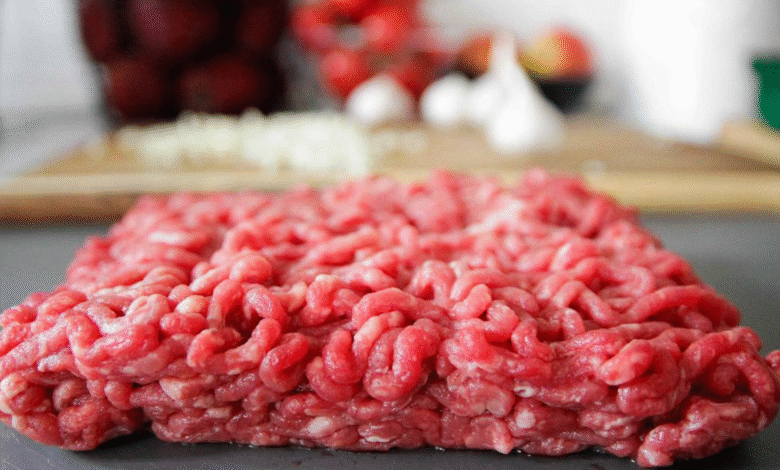Aladdin Ground Beef Recall: What You Need to Know

Stay informed about the Aladdin ground beef recall. Learn what products are affected, what to do if you have them, and how to stay safe. Expert advice and food safety tips included.
Ground beef is a staple in many kitchens, from classic burgers and tacos to hearty pasta sauces. But when a recall hits the market—especially involving a widely distributed product like Aladdin ground beef—it can cause confusion, concern, and even fear. So what exactly is going on with the Aladdin ground beef recall? Why was it issued? How serious is it? And most importantly—what should you do if you have any in your fridge or freezer?
In this comprehensive guide, we’ll break down everything you need to know about the Aladdin ground beef recall. You’ll get insights from food safety experts, practical steps to follow, and some grounded advice on what this means for your meals and your health. Let’s dive right in.
Understanding the Aladdin Ground Beef Recall
Food recalls happen for a number of reasons, but when it comes to meat products—especially ground beef—the stakes are especially high. The Aladdin ground beef recall was issued due to concerns that the product may be contaminated, and contamination in ground beef isn’t something you want to take lightly.
According to reports, Aladdin ground beef was recalled due to possible contamination with harmful bacteria, most notably E. coli or Salmonella. These bacteria can lead to serious illness, particularly in vulnerable populations like children, elderly adults, and individuals with compromised immune systems. The recall was initiated after routine testing revealed signs of contamination in several product batches.
The affected batches were distributed across several states, making this a multi-state recall with widespread impact. If you’ve recently purchased Aladdin ground beef or have it stored in your freezer, it’s important to check the packaging immediately. Look for batch numbers, expiration dates, and any other identifying information listed in the recall notice.
What Makes This Recall So Serious?
Ground beef is different from whole cuts of meat. Because it’s ground, bacteria present on the surface of the meat can end up being mixed throughout the entire product. That means even cooking it to a seemingly safe temperature might not eliminate all the harmful pathogens if it’s not cooked thoroughly.
The Aladdin ground beef recall isn’t just a matter of precaution—it’s a response to an actual risk identified during safety checks. These checks are part of standard operating procedures in the meat industry and are designed to catch problems before they result in illness or, worse, hospitalization. The presence of dangerous pathogens like E. coli O157:H7 is not something regulators take lightly.
Another reason this recall stands out is because of Aladdin’s market share. Aladdin Foods is a recognizable name in the meat distribution industry, especially in grocery stores across the Midwest and Southern states. Many consumers may have unknowingly purchased the product, making awareness and education around the recall even more critical.
How to Check If Your Ground Beef Is Affected
The first step is to locate the original packaging. If you’ve already discarded it, identifying whether your ground beef is affected might be more difficult, but not impossible. Many stores that sold the recalled product have posted notices both in-store and online.
Check for the following on your packaging:
- Brand name: Aladdin
- Product type: Ground beef (in one-pound, three-pound, and five-pound packages)
- Establishment number: EST. 46945 or similar (usually printed on the label inside the USDA inspection mark)
- Production dates between specific ranges listed in the official recall
If you find a match, the recommendation is clear: do not consume the product. Instead, return it to the store for a refund or dispose of it safely. Make sure to wash your hands thoroughly after handling the product or the packaging.
What to Do If You’ve Eaten the Recalled Ground Beef
So, what if you’ve already consumed some of the recalled Aladdin ground beef? First, don’t panic. Not everyone who consumes contaminated meat will get sick. That said, it’s important to watch for symptoms and seek medical attention if they appear.
Common symptoms of foodborne illnesses caused by E. coli or Salmonella include:
- Nausea and vomiting
- Diarrhea, sometimes bloody
- Abdominal cramps
- Fever and chills
Symptoms can begin as early as a few hours after eating contaminated food, but in some cases, it might take several days. If your symptoms are severe or persist, consult your doctor immediately.
Why Food Recalls Happen and What They Mean
The recall of Aladdin ground beef is a good reminder that food recalls, while scary, are a sign that the safety system is working. When issues are discovered, pulling the product from the market is the responsible thing to do. It prevents more people from getting sick and shows a commitment to public safety.
Recalls are typically categorized into three classes:
- Class I: There’s a reasonable probability that the product will cause serious health consequences or death.
- Class II: The product may cause temporary or medically reversible health issues.
- Class III: The product is unlikely to cause adverse health consequences.
The Aladdin ground beef recall has been treated as a Class I, indicating a serious concern. This underscores the importance of acting quickly and responsibly if you think you have this product in your home.
Preventing Illness from Ground Beef
Even if you haven’t been directly affected by this recall, it’s a good opportunity to review some general food safety practices. Proper handling and cooking of ground beef can drastically reduce the risk of foodborne illness.
Here are some expert-backed tips:
- Cook ground beef to at least 160°F. Use a meat thermometer to ensure the inside reaches this temperature.
- Avoid cross-contamination by using separate cutting boards and utensils for raw meat.
- Wash your hands and surfaces thoroughly after handling raw meat.
- Store ground beef at 40°F or below and freeze it if you don’t plan to use it within a couple of days.
Food safety doesn’t have to be complicated, but it does require awareness and a bit of diligence.
Aladdin Foods’ Response to the Recall

Aladdin Foods has issued an official statement acknowledging the issue and cooperating fully with federal and state regulatory bodies. They’ve also taken steps to identify the root cause and prevent future incidents.
The company emphasized that customer safety is their top priority and expressed regret for the inconvenience caused. Additionally, they have set up a hotline and a dedicated webpage to provide consumers with up-to-date information.
This kind of proactive approach is important—not just for resolving the current issue but for rebuilding consumer trust. Transparency goes a long way in the food industry, especially when safety is involved.
The Bigger Picture: Food Safety in the U.S.
While the Aladdin ground beef recall is serious, it’s not an isolated event. The U.S. has one of the most comprehensive food safety systems in the world, but no system is perfect. Recalls happen. What matters is how quickly they’re addressed and how well the public is informed.
Organizations like the USDA’s Food Safety and Inspection Service (FSIS) and the Centers for Disease Control and Prevention (CDC) work continuously to monitor the food supply, identify outbreaks, and implement safeguards. These efforts help ensure that when issues arise, they are dealt with swiftly.
Still, consumers play a vital role. Staying informed, practicing proper food safety at home, and reporting suspicious illnesses can make a big difference.
“Food safety isn’t just about what happens at the factory. It’s about the decisions we make every time we open the fridge.”
FAQs About the Aladdin Ground Beef Recall
What is the reason behind the Aladdin ground beef recall?
The recall was initiated due to potential contamination with harmful bacteria like E. coli, which can cause serious foodborne illness.
Which products are included in the Aladdin ground beef recall?
The recall covers various package sizes of ground beef from Aladdin, with specific establishment numbers and production dates listed by the USDA.
What should I do if I have the recalled beef?
Do not eat it. Return it to the place of purchase or dispose of it safely, and thoroughly wash your hands and any surfaces it contacted.
Can cooking kill the bacteria in contaminated beef?
Proper cooking can kill most bacteria, but the risk isn’t worth it with recalled meat. It’s safest to avoid consuming it entirely.
What are the symptoms of illness from contaminated ground beef?
Symptoms include stomach cramps, diarrhea (often bloody), vomiting, and fever. Seek medical attention if symptoms are severe.
Is it safe to buy Aladdin ground beef now?
Check for updates from the company and government agencies. Products outside the affected batches are considered safe, but always practice good food safety.
Has Aladdin Foods had recalls before?
There have been occasional recalls in the past, but this one has received more attention due to its potential health impact and wide distribution.
Where can I get more info on the recall?
Visit the USDA or Aladdin Foods’ website. They have updated listings, hotline numbers, and guidance for consumers.
Final Thoughts: Staying Safe in Your Kitchen
The Aladdin ground beef recall serves as a wake-up call for many of us who cook at home. It’s easy to assume the food we buy is safe, but things can go wrong anywhere along the supply chain. Staying alert, informed, and proactive can help keep your meals delicious and safe.
Always double-check your packaging, follow safe cooking practices, and don’t hesitate to toss anything you’re unsure about. It’s better to lose a few bucks worth of beef than risk your health.
Stay smart, stay safe, and don’t let this recall ruin your confidence in your cooking—just use it as motivation to stay informed and vigilant.





